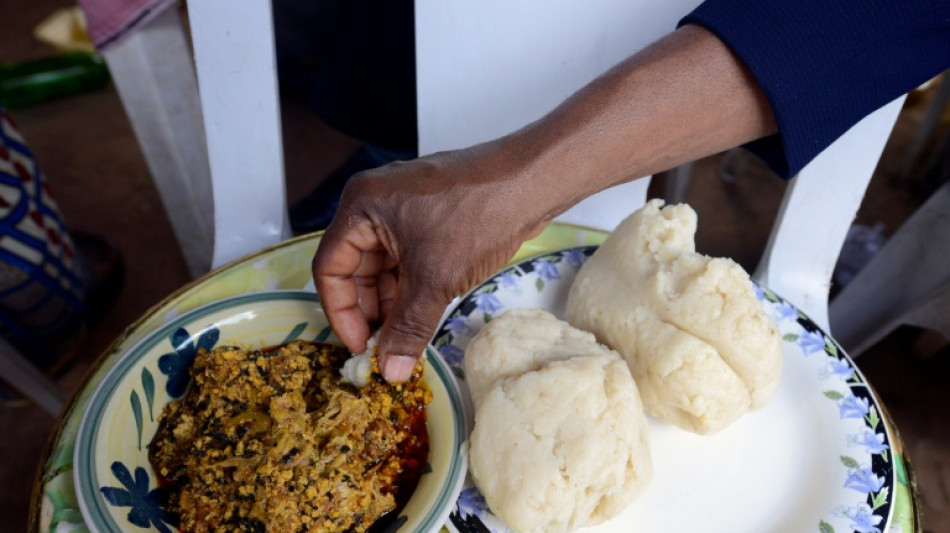
Nigerian scientists await return of Egusi seeds sent to space

If Earthlings are ever going to colonise Mars, they won't be able to do so on an empty stomach -- and Temidayo Oniosun thinks a helping of Egusi soup, a Nigerian staple, might just hit the spot.
Space in Africa, the Lagos-based firm Oniosun founded, is expecting its Egusi melon seeds to splash down in the Pacific Ocean Saturday -- fresh from a trip to the International Space Station.
Once Earthside, experiments will begin on what is being hailed as the first food native to west Africa to be sent to space.
As Oniosun told AFP on Friday, it could herald an era where space exploration reflects the planet's diversity.
"When we talk about humans colonising other planets, this is not just an American mission or a European mission -- this is a global mission," he told AFP.
And future African space explorers might enjoy a taste of home.
Experiments on extraterrestrial food, which is to say tested in space, have been going on for years.
Growing food in space is seen as a crucial part of long-distance space flight and long-term missions, where frequent resupply won't be feasible.
- International tests -
Scientists at the University of Florida in the United States, and the International Institute of Tropical Agriculture, in the southwestern Nigerian city of Ibadan, will examine the seeds "to see the effects of exposure to space" and zero gravity, including on the seeds' DNA.
Once planted, researchers will monitor their post-space performance and germination.
The seeds went up to the ISS on a SpaceX Flight last week, as part of NASA's partnership with private firms.
Oniosun said the inclusion of Egusi seeds marked an important step forward, both for those on Earth as well as future astronauts.
High in protein, they are typically used to prepare soups and stews across west and central Africa.
Africa's most populous country has a small space industry, but the launch of the seeds seemed to generate more excitement on social media and in newspapers than previous launches of Nigerian satellites, he said.
"The moment that we're sending food that they love, a food that holds significant cultural contexts to Nigeria... everybody starts getting interested in the subject," Oniosun told AFP.
"The launch of Egusi melon seeds into space is more than a symbolic gesture," he added.
"The future of humanity among the stars must reflect the diversity and richness of life on Earth."
Whether pounded yam -- the key dish served alongside Egusi soup -- will make its way to the final frontier remains to be seen.
T.Murray--SMC


 London
London

 Manchester
Manchester
 Glasgow
Glasgow
 Dublin
Dublin
 Belfast
Belfast
 Washington
Washington
 Denver
Denver
 Atlanta
Atlanta
 Dallas
Dallas
 Houston Texas
Houston Texas
 New Orleans
New Orleans
 El Paso
El Paso
 Phoenix
Phoenix
 Los Angeles
Los Angeles



